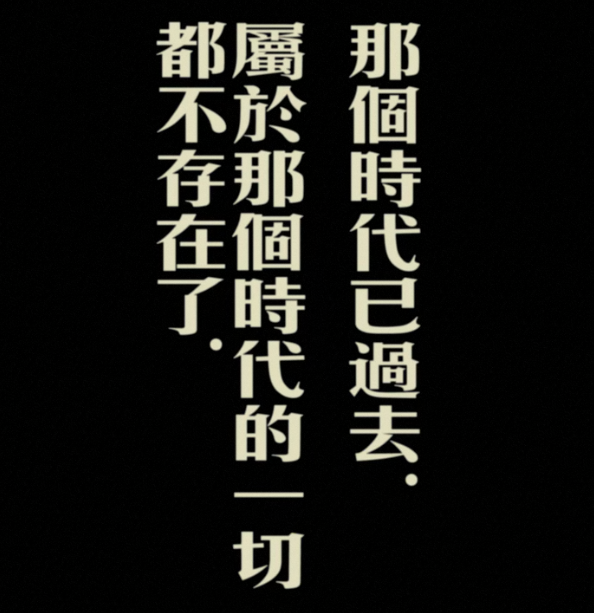In the 2000 movie “In the Mood for Love”, directed by Wong Kar-wai (who I have heard about a lot but never watched any of his movies), towards the end of the movie, there is this writing on the screen:

The writing, 那個時代已過去、屬於那個時代的一切都不存在了., means – according to google translate: “That era has passed, and everything belonging to that era no longer exists.”
I watched this movie for the first time today. It struck me as incredibly beautiful. Why did I not see this movie before?
A passed era. We may remember glimpses of it, or we may re-enact it in our dreams, or write about it, conjuring the bygone times into reality once again, like Kar-wai did with this movie depicting the Hong Kong of the 1960s.
But there is also a lot to say about the visuals of this movie, which I see from reading also is something of a signature move by the director. To have a particular view on the visuals.
I will explore Wong Kar-wai’s movies more. There seems to be 10 movies by him:
| Year | Title | Seen? | |
| 1988 | As Tears Go By | n | |
| 1990 | Days of Being Wild | n | |
| 1994 | Chungking Express | n | |
| 1994 | Ashes of Time | n | |
| 1995 | Fallen Angels | n | |
| 1997 | Happy Together | n | |
| 2000 | In The Mood for Love | y | |
| 2004 | 2046 | n | |
| 2007 | My Blueberry Nights | n | |
| 2013 | The Grandmaster | n | |
| 2023 | Blossoms Shanghai | n |
Hong Kong is one of my favourite cities in the whole world. I visited it first time in 2000 (I had a gf from Hong Kong from 1999-2004), and the city created it’s own impact on me. More on that another time.
